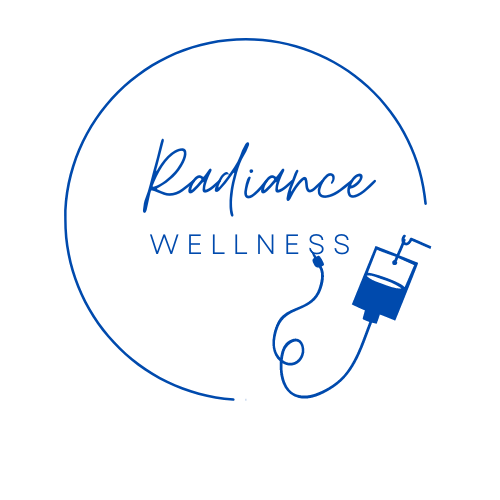FAQ - Ketamine Therapy
Every year 13-14 million Americans suffer from depression. Of those who seek treatment, only 30% to 40% respond to standard treatments with antidepressants, atypical antipsychotics, mood stabilizers, stimulants or combinations of them. These people are more prone to substance abuse, disability, repeated hospitalizations and suicide attempts. Patients are required to consume medications chronically with marginal relief. Our mission is to provide personalized high-quality care for people afflicted with severe depression not responding to antidepressants.
Ketamine is known to quickly relieve depressive symptoms in more than 80% of patients who did not respond to other medications or treatments in record time!
IV Ketamine is now recognized as a safe and effective treatment for Depression, Bipolar Depression, Suicidality, Obsessive Compulsive Disorder, PTSD, and other Anxiety States, as well as Fibromyalgia, Migraines, RSD (Reflex Sympathetic Dystrophy), and other Chronic Pain Syndromes. However, it should be noted that these treatments are not approved by the FDA.
What are some facts about ketamine?
1. FAST ACTING
Patients feel better within hours of treatment.
2. MINIMAL SIDE EFFECTS
Ketamine is a safe treatment with few or no side effects.
3. SAFE DRUG
Ketamine was FDA approved in 1970 and used by anesthesiologists in surgery.
4. EFFECTIVE WITH LONG TERM BENEFITS
Ketamine is effective in treating mood, anxiety and pain conditions.
5. MINIMAL DOWNTIME
IV infusions last approximately 45 minutes. Patients usually recover within 30 minutes of treatment.
What is Ketamine?
Ketamine is a pharmacological agent used mainly for pediatric and veterinary anaesthesia. It has been in use for about 50 years. Recent clinical studies and research have proved its extraordinary effectiveness in treating severe chronic depression, bipolar disorder, OCD, chronic anxiety, PTSD, and chronic pain disorders. The drug is also used in emergency rooms as a potential life saver in suicidal patients.
Which Chronic Pain syndromes can benefit from Ketamine?
- Neuropathic pain that is not well controlled with injections, nerve blocks, or prescription pain medications. Trigeminal neuralgia, complex regional pain syndrome (CRPS), or reflex sympathetic dystrophy (RSD), phantom limb pain, post-herpetic neuralgia, and some headaches are examples.
- Chronic back and neck pain,resistant to any form of treatment.
- Chronic TMJ
- Fibromyalgia
- Other debilitating musculoskeletal and joint pain.
What is the success rate?
Recent studies by the NIMH (National Institute of Mental Health) showed that 6 IV infusions over 2-3 weeks resulted in an 83-87% remission rate in depressive and anxiety disorders, Studies in prestigious universities have shown that 2 out of 3 patients with treatment resistant depression show a dramatic improvement in their mood and 3 out of 4 will cease to have suicidal ideation. We will know within two treatments if ketamine infusions will help you.
Ketamine has multiple mechanisms that work on different receptors and reorganizes the damaged equilibrium state of neural networks and various neurotransmitters in the brain that cause impairment in memory, learning, executive functions, pain, anxiety and mood.
Recent scientific research reveals that a nucleus called lateral habenula (LHb) above the stalk of the pineal gland mediates core symptoms of depression. The neurons in LHb are “reward negative” as they are activated by unexpectedly unpleasant events. Thus LHb is dubbed as a key part of “disappointment circuit”. The output from these neurons inhibit dopamine neurons, i.e the activation in LHb leads to deactivation of the dopamine neurons in nucleus accumbens and vice versa. If the LHb is overactive it can suppress rewards from normally pleasurable activities leading to long-term apathy and hopelessness.
Ketamine is also recognized as an N-methyl-D-aspartate (NMDA) blocker, thus decreasing the excitatory effects in the frontal cortex, rapidly relieving depression. Glutamine increases brain plasticity and connectivity. Recent studies show that indirect stimulation of another glutamate receptor, AMPA, is responsible for the rapid antidepressant action.
Ketamine has been shown to enhance opioid-induced analgesia and prevent hyperalgesia. These effects are observed in heterologous cells expressing μOR suggesting a non-NMDA receptor-mediated action of ketamine. Ketamine can regulate the function of opioid receptors and sodium channels. Ketamine also increases signaling through α-amino-3-hydroxy-5-methyl-4-isoxazolepropionic acid (AMPA) receptors.
What are some other uses for ketamine?
Ketamine for Mental Health and Pain Management: Ketamine infusions are helpful for depression, bipolar depression, OCD, PTSD, anxiety, suicidality and acute and chronic pain syndromes. Ketamine is administered intravenously in our private salt room which is very closely monitored. Each Ketamine infusion session takes about 40 min, with a 20 min observation time at the end. You will be able to relax in our zero-gravity chairs during the infusion while we monitor your heart rate, pulse, and oxygenation. You are welcome to stay and use the facility as long as you need, however we do require that you have someone drive you home.
The NIMH protocol for mental health showed equally effective results (83-87% remission rate) when the 6 infusions were done 3x/wk over 2 weeks or 2x/wk over 3 weeks.
Prices for Ketamine Infusions:
- IV Ketamine Infusion 1st Session: $550 (includes a medical intake appointment scheduled at least 24 hrs prior to the first IV infusion)
- IV Ketamine Infusion (4 hr infusion for chronic pain): $900 What are some references?
-
What are some references?
https://www.ncbi.nlm.nih.gov/pmc/articles/PMC2750819/
https://www.ncbi.nlm.nih.gov/pubmed/19783371/
https://www.ncbi.nlm.nih.gov/pmc/articles/PMC3268359/#R200
http://fpm.anzca.edu.au/documents/proposal-for-practice-guideline-low-dose-ketamine.pdf
